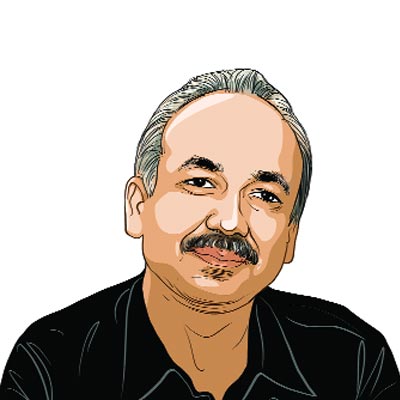Opinion Uncertainty rules
Nepal at a turning point,again.
The prime minister of Nepal,Jhalanath Khanal,has resigned. He goes unwept and unsung. Prachanda,the Maoist chief and architect of the radical left takeover,had tried to delay Khanals resignation,but that amounted to going against the current political tide and he gave up at the end. The resignation,on August 14,came over a fortnight before the term of the Constituent Assembly expires on August 31.
On May 29,Khanal had promised to step down immediately,following an agreement between the three big parties the Unified Communist Party of Nepal-Maoists (UCPN-M),the Nepali Congress and the Communist Party of Nepal-Unified Marxist Leninist (CPN-UML). But he managed to stay at the helm,saying his exit,without a consensus on a successor,could jeopardise the drafting of the constitution and give power back to right reactionaries and their external patrons who,he said,were out to destabilise the country.
Even as his party,the CPN-UML,pressured Khanal to resign,he had the backing of Prachanda. The Maoist leader feared that,on Khanals exit,his arch-rival Baburam Bhattarai would become the next prime minister.
Khanal,in return,did everything he could to appease Prachanda since he took over on February 6. He gave the home ministry to the Maoists,first to K.B. Mahara and then Narayankaji Shrestha Prakash. When he reshuffled the cabinet last month,he again gave key portfolios to the Maoists,defying explicit instructions from his partys central committee.
However,Khanals resignation by itself has not provoked a debate outside the parties and the parliament. The ongoing discussion on various public fora is more on whether there should be a roll-back on the demand for a federal structure on the basis of ethnicity and caste,a demand that many NGOs and the UCPN-M have endorsed. Should there be a fragmentation of society,or a restoration of social accord that Nepal has been known for? The political parties,meanwhile,are reduced to the villains of the piece.
The current dispensation has failed to establish the authority of the state,honour the rule of law,check corruption and address peoples issues,including their security, says Damannath Dhungana,a leader of the Nepali Congress who was the speaker in the early 1990s. But it is not just the CPN-UML. The public has never expressed a loss of confidence in the entire political structure as it has now. The culture of distributing perks,privileges and key political appointments among the top three parties and the immunity that politicians are enjoying in major corruption cases have contributed to the loss of the image of the big parties and their leaders.
On August 12,Mahesh Basnet,the chief of the Youth Force Nepal,a militant youth wing of the CPN-UML,said his organisation would effect the closure of a media house,and have one of its editors put behind bars. The media house was targeted because of its consistent demand for the arrest of a regional leader of the Youth Force absconding for the past three months after assaulting one of its reporters. Like the Young Communist League,affiliated with the Maoists,the Youth Force enjoys considerable power and privileges and have a say in the allocation of government contracts.
In the midst of this chaotic stage in Nepals politics,Rakesh Sood,who clearly reversed Indias pro-Maoist policy initiated since November 2005,has left Nepal on completion of his term as ambassador. The radical left is celebrating his departure,hoping that his successor,Jayant Prasad,will not be as hostile towards Maoists as Sood was. In fact,India continues to be criticised in most quarters in Nepal for having promoted radical elements,mainly the Maoists,and sidelined traditional allies,including the monarchy.
With another political crisis in Kathmandu,and no chance of a constitution being delivered by the August 31 deadline,a semblance of normality can be effected only by a rapprochement between the old order represented by the former king and the new one represented by the Maoists and other political parties,possibly with constructive engagement by Nepals two neighbours,India and China. Another political experiment will only add to uncertainty and anarchy.
yubaraj.ghimire@expressindia.com


